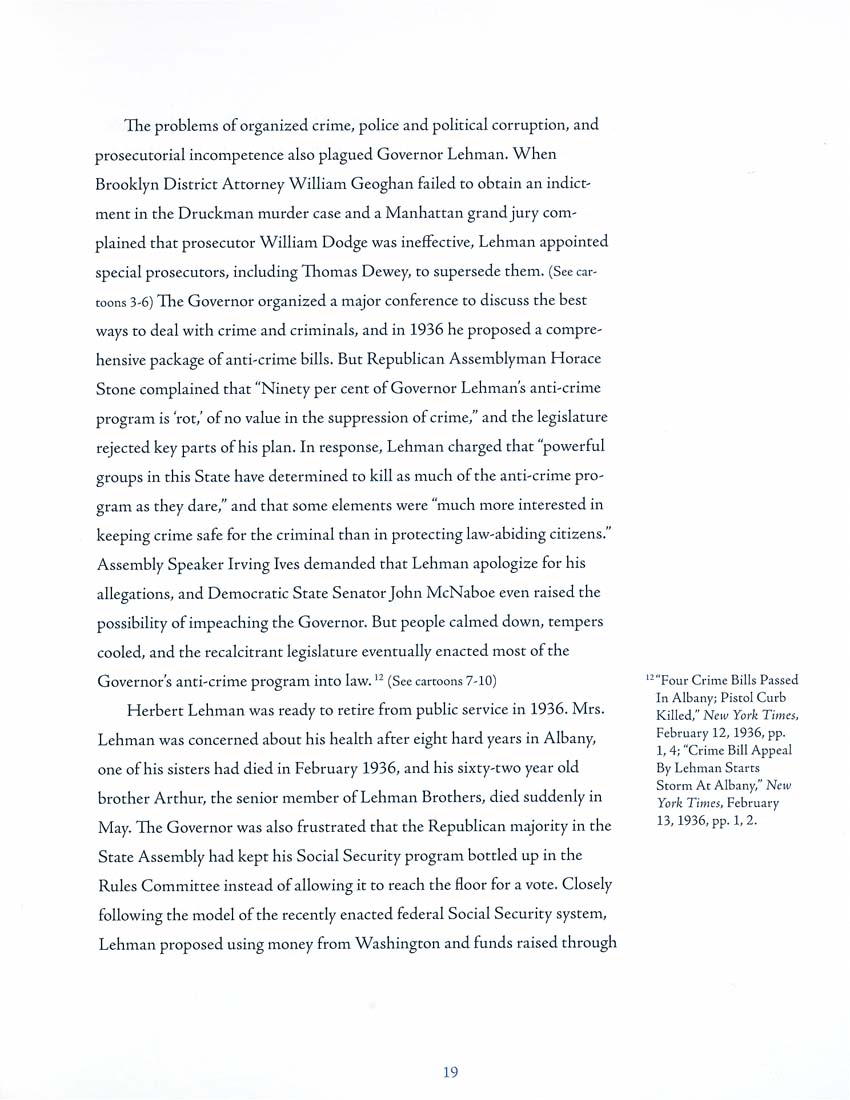The problems of organized crime, police and political corruption, and
prosecutorial incompetence also plagued Governor Lehman. When
Brooklyn District Attorney William Geoghan failed to obtain an indict¬
ment in the Druckman murder case and a Manhattan grand jury com¬
plained that prosecutor William Dodge was ineffective, Lehman appointed
special prosecutors, including Thomas Dewey, to supersede them. {See car¬
toons 3-6) The Governor organized a major conference to discuss the best
ways to deal with crime and criminals, and in 1936 he proposed a compre¬
hensive package of anti-crime bills. But Republican Assemblyman Horace
Stone complained that "Ninety per cent of Governor Lehman's anti-crime
program is 'rot,' of no value in the suppression of crime," and the legislature
rejected key parts of his plan. In response, Lehman charged that "powerful
groups in this State have determined to kill as much of the anti-crime pro¬
gram as they dare," and that some elements were "much more interested in
keeping crime safe for the criminal than in protecting law-abiding citizens."
Assembly Speaker Irving Ives demanded that Lehman apologize for his
allegations, and Democratic State Senator John McNaboe even raised the
possibility of impeaching the Governor. But people calmed down, tempers
cooled, and the recalcitrant legislature eventually enacted most of the
Governor's anti-crime program into law. '^ (See cartoons 7-10)
Herbert Lehman was ready to retire from public service in 1936. Mrs.
Lehman was concerned about his health after eight hard years in Albany,
one of his sisters had died in February 1936, and his sixty-two year old
brother Arthur, the senior member of Lehman Brothers, died suddenly in
May. The Governor was also frustrated that the Republican majority in the
State Assembly had kept his Social Security program bottled up in the
Rules Committee instead of allowing it to reach the floor for a vote. Closely
following the model of the recently enacted federal Social Security system,
Lehman proposed using money from Washington and funds raised through
^"Four Crime Bills Passed
In Albany; Pistol Curb
Killed," New York Times,
February 12, 1936,pp.
1, 4; "Crime Bill Appeal
By Lehman Starts
Storm At Albany," New
York Times, February
13, 1936, pp. 1,2.
|








